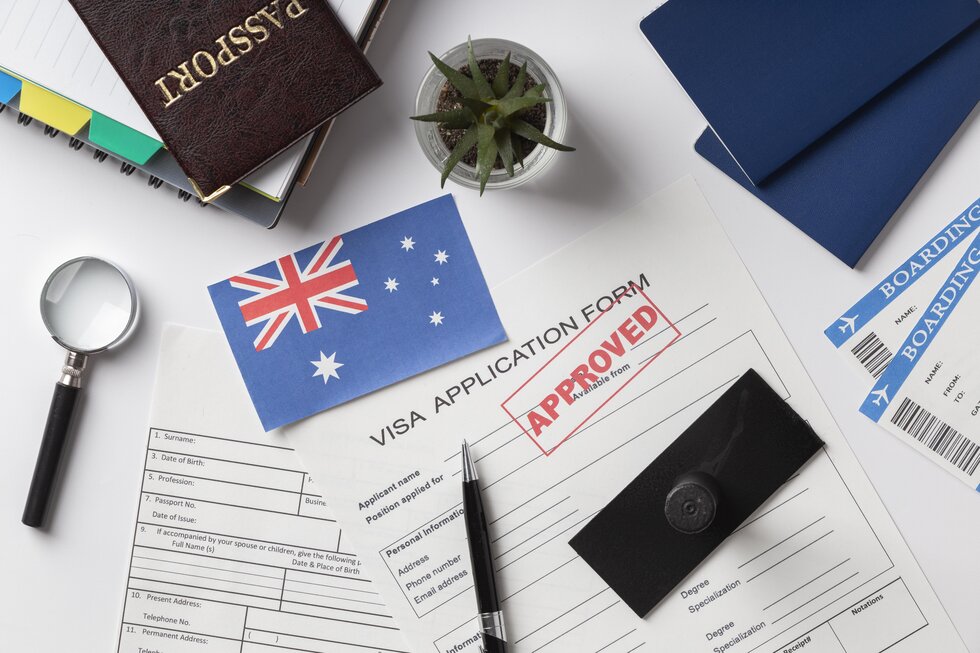1. Quality of Education
The feedback we’ve gathered through clients is that there may not be that much support for international students in academic institutions that are more affordable in cost. This can be a pivotal cause of concern when it comes to choosing the course and school you want to apply to.
As a prospective international student, you would want to have a good education and have an institution be able to provide support for you in achieving your goals, honing your skills, and teaching you to be ready for occupation once you graduate.
With cheaper schools, they can also potentially offer limited options with the courses and degrees. This can hinder your high-aimed intentions of premium learning and mastery.
We suggest you deep dive into the courses and schools that pique your interest and check if the core values, student experience, and performance standards align with yours. Explore various areas in Australia for a wider scope and understanding of what you plan is for your studies.
2. Lack of Diversity
The nationality mix of the school you attend is another important factor to consider. There are schools that don’t have a lot of diversity and there’s not that much inclusivity within the student community and within the institution overall.
An example of this would be something like a school where there’s not a lot of students from other ethnicities or with different backgrounds. There’s not much representation and there may be a possibility of not being included in crucial conversations about school policies, standards, and guidelines.
When you research about the courses and the schools you plan on applying for, check out their student demographic. Get to know the schools and the kinds of students who study there and see if there’s a good amount of diversity, including accommodations for those who are handicapped and for those who have regular religious practices.
3. Hidden Costs
Schools who offer the lowest prices come at a cost, literally. There may be charges that are not being given upfront to the students.
Aside from paying tuition, there are miscellaneous fees involved too. The difference is that the prices of the fees can be significantly higher than the actual tuition fee you paid for. Payments like Enrolment fee, Material Fee, or Fees for Missed or Late Assignment Submissions are higher than the standard tuition fee.
A good suggestion here would be to take time to learn about the standard tuition fees in Australia, then compare and contrast those with the cheaper schools. Another good way to get more information about this is to learn from students enroled in that school. Get first-hand accounts by looking at legitimate educational forums and create a discussion there. It’s also a great way of understanding their lived experiences.
4. Risk your Student Application
The Immigration knows which schools are of good standards. If in any case that you’re applying to a substandard school, it’s highly likely that you might not be granted permission to study in Australia.
Carefully consider which school you intend on applying to and gather as much information that would help you make the right and sound decision. A good way of doing this is speaking to one of our expert migration agents from Pathway to Aus. They’ve been in the education-migration space for a number of years and can offer you some clarity, perspective, and understanding of how to go about your potential study in the country.
Cheap Course Programs in Australia
To help you out, we’ve compiled a list of the cheapest courses available in different parts of the country.
Brisbane
- Hospitality – 5,000 AUD
- General English – 170 AUD
- Early Childhood Education & Care – 975 AUD
- Individual Support – 6,500 AUD
- Diploma of Business – 900 AUD
- Accounting – 7,900 AUD
Gold Coast
- Fitness – 5,500 AUD
- General English – 170 AUD
- Human Resources Management – 250 AUD
- Business Sales – 4,100 AUD
- Cert IV in Marketing – 100
- Leadership & Management – 125 AUD PER WEEK
Sydney
- General English – 1,600 AUD
- Business – 2,700 AUD
- Leadership & Management – 1,500 AUD
- Cert IV in Marketing – 1,300 AUD
- Information Technology – 6,000 AUD
- Community Services – 1,600 AUD
Melbourne
- Leadership & Management – 4,000 AUD
- Interior Design – 6,900 AUD
- Individual Support – 6,800 AUD
- Cert IV in Marketing & Communication – 6,700 AUD
- Hospitality – 3,000 AUD
- Cert IV in Entrepreneurship & New Business – 6,700 AUD
Adelaide
- General English – 175 AUD
- Commercial Cookery – 7,000 AUD
- Business – 10,065 AUD
- Ageing Support – 11,990 AUD
- Diploma of Business – 6,000 AUD
- Light Vehicle Mechanical Technology – 12,875 AUD
Perth
- Cert IV in Kitchen Management – 5,000 AUD
- Hospitality Management – 5,000 AUD
- Project Management – 4,000 AUD
- Social Media Marketing – 6,500 AUD
Studying the right course can significantly increase your chances of getting an Australian Work Visa. We suggest you apply for a Graduate Visa (subclass 485) which allows international students to remain in Australia for 18 months, 3 years after finishing their studies, without employer sponsorship or points testing.
Once you’ve done the Job Ready Program and the skills assessment, you’re eligible to apply for General Skilled Migration (GSM) visas: The Skilled Independent (subclass 189), Skilled Nominated (subclass 190) or Regional Nominated (subclass 491) visas.
Want to go in-depth and get started on your pathway? Get in touch with one of our experienced Registered Migration agents today!
FAQs
What do I need to prepare for when studying in Australia?
You need to have a chosen course and school where you want to study. You will need a student visa to be able to study in Australia, so, gather your required documents that will be submitted to Immigration.
How do I apply for a Student Visa?
- Choose a course
- Enrol in the course
- Apply for the Student Visa
- Immigration Application Review
- Receive a Decision
- 6. Plan your stay in Australia
You can check out our latest blog article about Student Visa and the Beginner’s Guide to Student Visa Application. Hope this helps!
Can I work while I am studying in Australia?
Yes, you can! International students with a Student visa can work within the country, but there are important restrictions.
If you want to know more about that, you can check out our FAQs list.
How do I know which course would fit my skills?
Reflect on the current skills you have now and see what aligns with the courses offered. Since you’re going to spend time, effort, and money on studying in Australia, it would be best that you choose a course program and school that you feel suits your long-term goals and interests.
Learn more by taking a look at the Pathway Programs offered in different parts of the country.
Where can I live during my time there?
Living accommodations can be:
- Student accommodation
- Homestay
- Shared accommodation
- Facebook Groups
- Renting
You can have a look at useful websites that offer the kind of living situation you’re looking for. Get a more detailed description of these in our Accommodation page.






